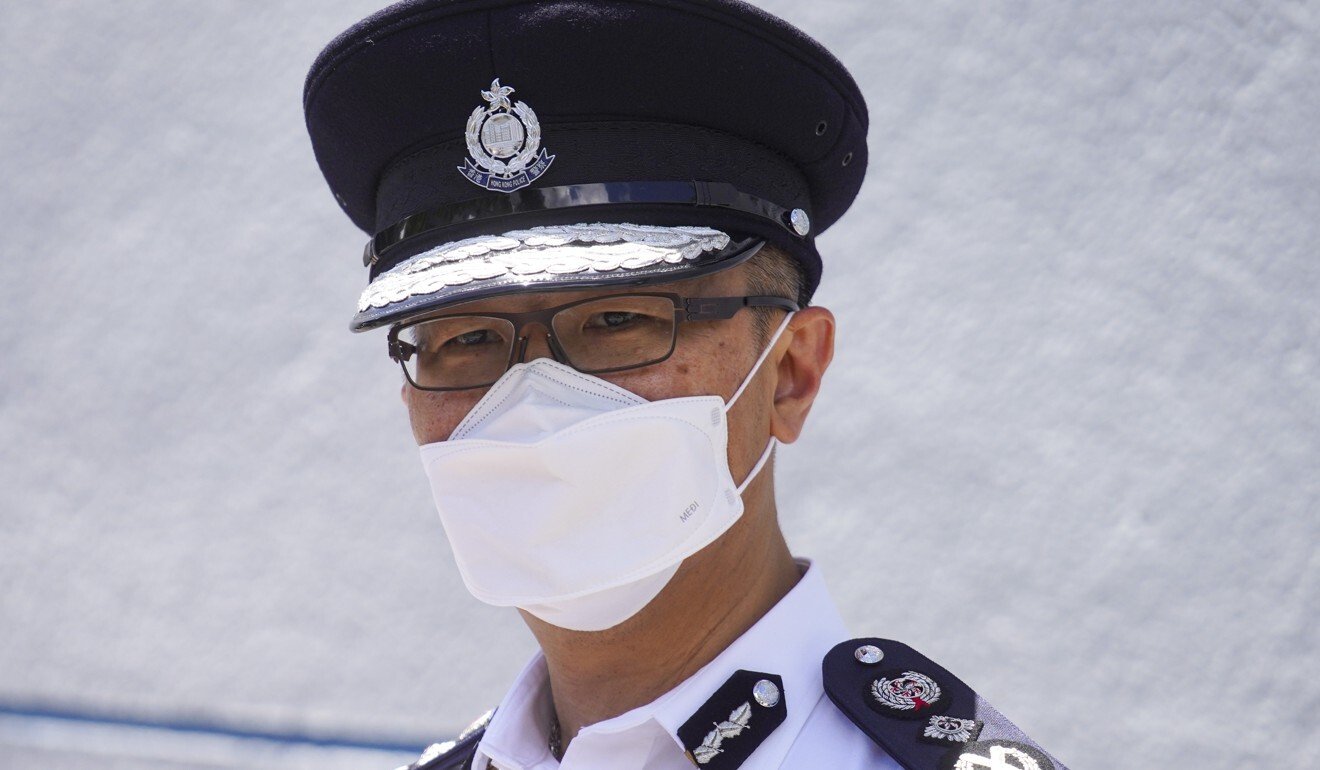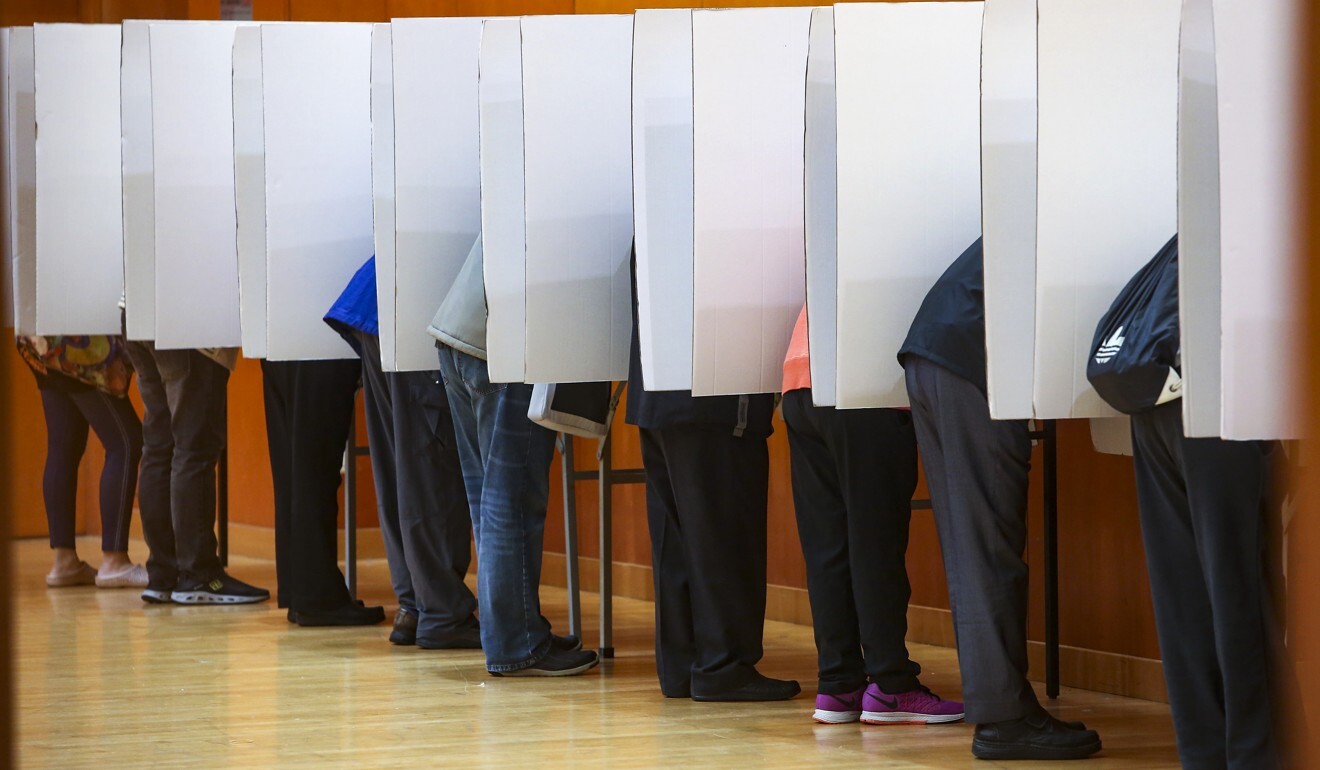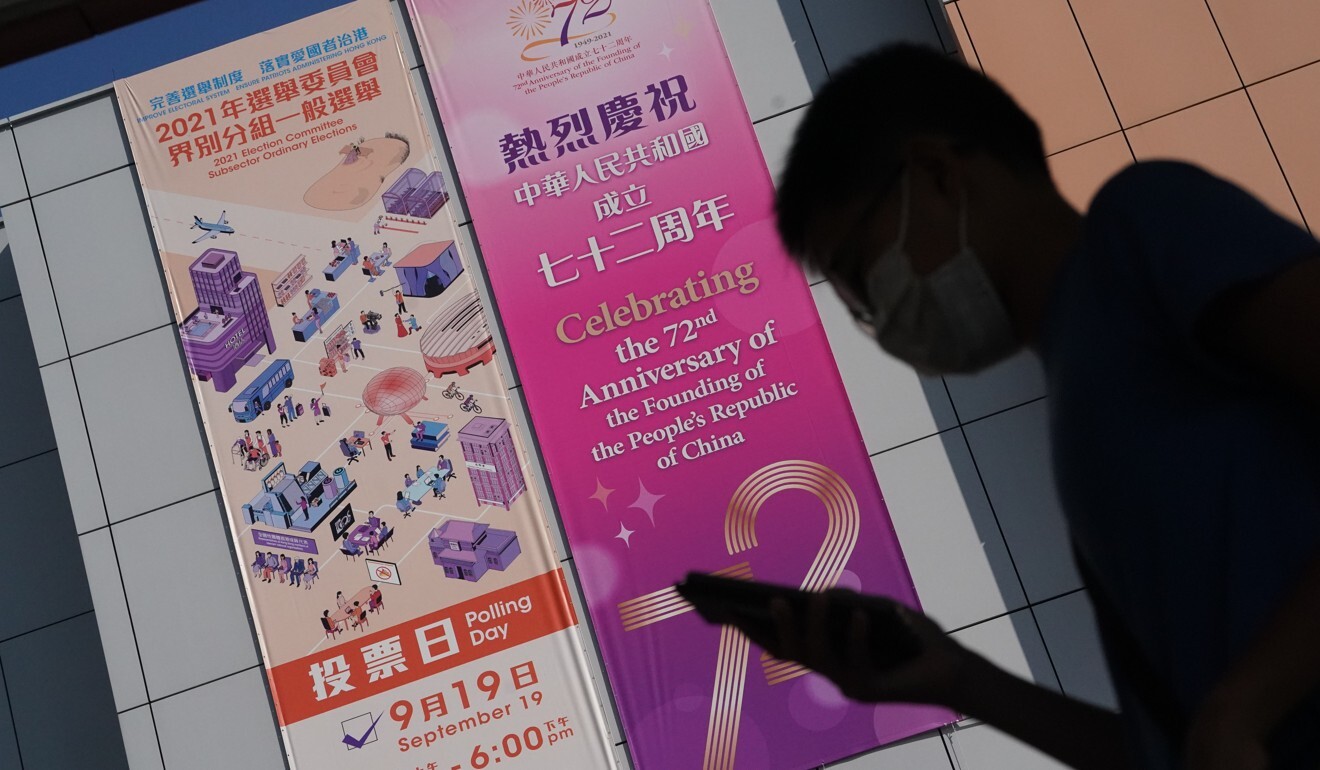
Hong Kong elections: up to 6,000 officers to be deployed, as No 2 official touts ‘special meaning’ of Sunday polls
- State media Xinhua hails exclusion of ‘those stirring trouble’ and ‘bottom line of steel’ in first elections under Beijing overhaul
- Police officers assigned to provide security for elections will outnumber voters
Hong Kong police will deploy between 5,000 and 6,000 officers on Sunday when some 4,900 people go to the polls to vote for members of the powerful Election Committee, as part of the city’s first political race under a system overhaul imposed by Beijing.
The polls would bear “special meaning”, paving the way for the principle of “patriots governing Hong Kong”, the city’s No 2 official John Lee Ka-chiu declared on his official blog on Saturday.
State media Xinhua also called the exclusion of “those stirring trouble in Hong Kong” a “bottom line of steel” in a commentary ahead of the elections.
Critics have taken issue with a significant reduction in the voter base and the lack of competition, with most opposition candidates either shunning the Election Committee polls or having been banned from it.
But Sunday’s ballots – featuring only two opposition faces – are expected to provide a glimpse into the room for manoeuvre left for those willing to press on with a more moderate form of dissent amid the city’s changed political landscape.

“These are the first polls since the improvement of the electoral system, which is the first major step to implementing ‘patriots governing Hong Kong’, and thus bearing a special meaning,” the chief secretary wrote.
“The government has attached great importance to this election and has done a lot of work to make sure it will proceed in a fair, impartial and open manner,” Lee added.
A total of 4,889 voters representing different professions and trades will cast their ballots at five voting stations in Wan Chai, Tsim Sha Tsui, Sha Tin, Tsuen Wan and Tuen Mun between 9am and 6pm.
Barnabas Fung Wah, chairman of the Electoral Affairs Commission, visited the central counting station at the Convention and Exhibition Centre in Wan Chai on Saturday.
“Once the polls are closed, the ballot boxes of ordinary polling stations and dedicated polling stations will be delivered to the central counting station at the convention centre, where counting of votes will take place,” Fung said of Sunday’s arrangements.
5 things to watch out for in Sunday’s Election Committee polls
Following Beijing’s electoral overhaul, the Election Committee has been tasked with not only selecting the chief executive but also nominating candidates to the legislature, and directly sending 40 lawmakers into the chamber, some or all of whom can be its own members.
Under the political shake-up, the Legislative Council has also grown from 70 to 90 seats.
The Election Committee has been expanded by 300 seats to become 1,500-strong, but only 412 candidates will be competing for 364 spots in 13 of 40 subsectors, with most positions already allocated to ex officio members or granted uncontested.
The 13 subsectors are: commercial (third); labour; social welfare; insurance; education; financial services; medical and health services; Chinese medicine; legal; technology and innovation; architectural, surveying, planning and landscape; and the area committees, district fire safety committees and district fight crime committees from both Hong Kong and Kowloon, as well as those of the New Territories.
The most hotly contested is the medical and health services sector, where 24 people are vying for 14 seats.
The electoral base has also dropped significantly compared with the last elections in 2016, in which there were 246,440 voters. This year, only 7,971 eligible voters had signed up and some 4,000 will be required to cast ballots. Individual votes, which in the past usually benefited the opposition camp, have been converted into corporate ones led by pro-establishment groups.

Despite the small numbers, police commissioner Raymond Siu Chak-yee said a sufficient deployment of officers would be key to ensuring the safety of the elections.
“In terms of police manpower we will deploy at least 5,000 to 6,000 police officers,” Siu said on Saturday, vowing to take resolute action against those interfering with the vote.
“We will carry out patrols and searches in a high-profile manner in the vicinity of the election venue as well as in high-risk areas,” he warned.
Explainer | 5 things to watch out for in Sunday’s Election Committee polls
Lawyer Nick Chan Hiu-fung, a Hong Kong delegate to the state’s top legislature, is involved in two legal bodies, each with a vote to cast on Sunday.
He said the legal sector, with 16 candidates vying for 15 seats, was a good example of how competition was not totally absent from the race, expressing hope those voted in would help pick a “wise person to solve Hong Kong’s deep-rooted problems”.
The Post learned some of the voting groups had met to discuss their choices, while others had left the decision-making entirely to a leader.
But opposition activist Chan Po-ying, from the League of Social Democrats, said the polls were a “small-circle” election, with opposition representatives kept at bay by an eligibility review committee. The group planned to hold a protest outside the Wan Chai polling station on Sunday morning.
Cheng Chung-tai, the only opposition lawmaker in the legislature, was initially qualified as an ex officio member of the Election Committee, but his candidacy was invalidated by the review panel and he was unseated from Legco two weeks ago.

Tian Feilong, an associate professor at Beihang University’s law school in Beijing, said the polls were significant in showing that moderate pro-democracy candidates and “loyal opposition” were still welcome, paving the way for others to run in December’s Legco elections.
But state media Xinhua, which warned of a bottom line “as concrete as steel”, said Hong Kong could only “enter the next key phase of prosperity under order and good governance”, only if it adopted the stance of “out with those who stir chaos”.
Chinese University political scientist Ivan Choy Chi-keung cast doubt on the chances for the two opposition candidates, given the challenges from just securing their nominations from a base dominated by the pro-establishment camp.
He also said he believed the present elections provided little indication of how future polls would play out. “One should not look too far as it also depends on who will be allowed to run, whether all opposition candidates will be barred from running and, if not, how many of them will be allowed to run, as well as who they will be,” he said of the Legco polls.
‘Big Brother is watching’: why Beijing ordered Hong Kong tycoons onto streets
Tik Chi-yuen, one of the two opposition candidates in the Election Committee race, said he spent the past few days calling up dozens of the 144 voters in the social welfare subsector, where his ally Francis Chow Yin-ming is also contesting. Both are social workers.
Tik said he had difficulties contacting some heads of organisations so he left a message urging them to read his election materials. As for some of his friends who are voters, he added: “They are very positive and have said they would vote for me.”
Barrister Anthony Neoh is contesting in the legal sector. The former head of the police watchdog said he and 14 other candidates had sent out pamphlets to all 30 voting organisations. They visited 14 of the groups.
“I do not think that this year’s elections are too different from those for the Election Committee in previous years, except with vastly expanded constituencies,” he said.
Neoh’s running mate Ronny Tong Ka-wah, a barrister and an adviser on the government’s Executive Council, as well as a third-time candidate in the race, said he felt the mood was more or less the same, although he had paid more visits to legal firms specialising in mediation and arbitration this time, as there were more of them among the voter base, as opposed to legal firms and chambers when lawyers had individual votes.

Under Beijing’s political shake-up, a new post of chief convenor, responsible for running committee meetings when necessary and assigning conveners for each sector, has also been created.
Tam Yiu-chung, the city’s sole delegate to the country’s top legislative body, revealed on Friday that the identity of the position holder might be disclosed after Sunday’s polls, but he gave no definite time frame.
In a first, voters on Sunday will be allowed to bring along a reference list with the names and numbers of candidates of their choice, a concession granted given the considerable number of contestants.
Election authorities will also for the first time use a digital system to verify voter identities at polling stations. There will also be a special queue for people aged 70 or above, as well as those with difficulties standing for long periods.

